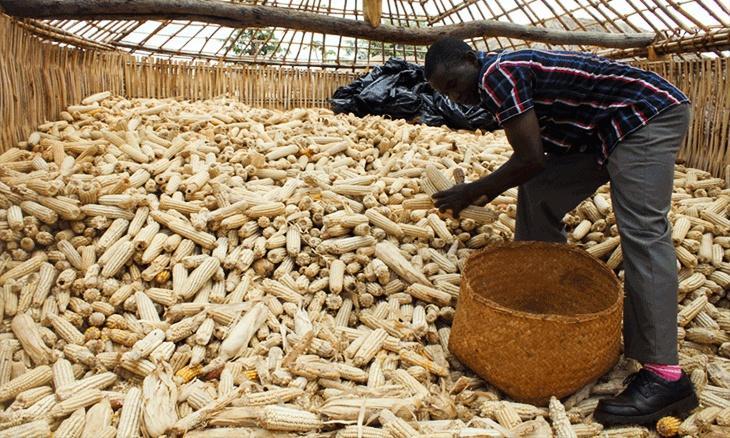Africa-Press – Mozambique. The country may start producing genetically modified corn. Research from the Mozambique Agricultural Research Institute recommends adopting seeds with altered genes to resist pests and tolerate drought.
It’s common to hear that major food consumers worldwide, like India, as well as many European countries, do not accept genetically modified agricultural products. But Mozambique prefers to advance in genetic manipulation, at least for corn, to produce a seed resistant to diseases and pests, as well as drought, which is increasingly common due to the impacts of climate change.
“In fact, what’s happening is that we’ve been conducting this research for 16 years. Our idea is not to say that we want this. Among several problems posed by farmers is the issue of low corn yield. At the national level, we’re around 900 kilograms/hectare, in some places, one ton/hectare.
In other countries, here, in the region where Mozambique is located, they’re producing 5 to 10 tons/hectare. So, from the analyses we’ve conducted, as research and as Government, it was found that the main limiting factor is the attack of pests and diseases on corn; another limiting factor is low precipitation, and another is the availability of certified seeds for farmers to work with,” explains agricultural engineer Zélia Menete, Director-General of the Mozambique Agricultural Research Institute (IIAM), in a justification of what led the institution she leads to move forward with this research, as it has done in studying improved varieties of various agricultural crops.
She’s aware of the international controversy that the issue raises, but understands that in Mozambique, it’s a non-issue, as genetically modified products have been consumed for years due to the country’s heavy dependence on neighboring South Africa.
“In South Africa, over 90% of corn is genetically modified. We’re all consuming genetically modified products here. As you know, we buy most of our products from South Africa.”
And for 16 years, Pedro Fato, from IIAM, has been involved in the genetic improvement study of corn. He has a degree in biology from Eduardo Mondlane University, a master’s in plant breeding from the University of Freestate, and a doctorate in the same area from the University of Kwazulu-Natal, both in South Africa.
The expert explains what they’re improving in the corn seed and for what effects.
“It’s corn that contains a gene responsible for a certain characteristic. In this case, we’re working with corn that has a gene for resistance to insects and tolerance to water stress – drought.”
A recent study by Eduardo Mondlane University, in partnership with the Ministry of Agriculture and FAO, concluded that the corn funnel worm, for example, is responsible for a 70% decrease in corn production in some parts of the country.
The plant breeder reassures that genetically modified corn has the same nutritional characteristics as non-modified corn.
“When we were conducting the trial in Chókwè, at some point, the Minister, at the time, of Science and Technology, asked us to conduct chemical studies, and we did. We took the material to the laboratory to see if there was any difference in terms of nutrients, and there was no difference in terms of nutrients and chemical composition of the corn. To say that the only difference is just the gene that confers a certain characteristic.”
But for the new seeds to be released for massive cultivation, the approval of the National Biosafety Authority is still needed, and their use will be optional.
So far, genetically modified corn is estimated to have a yield of one and a half tons per hectare, compared to the national average of 800 kilograms to one ton per hectare.
The same research being conducted in Mozambique is taking place in South Africa, Kenya, and Nigeria. The idea is to solve two present problems: to produce more in small areas and maximize productivity and to cope with increasingly frequent drought and dry spells.
Corn is the most produced cereal in Mozambique. It’s cultivated in an area of 2,286,362 hectares, with an average production of 1,632,321 tons, representing a national average yield of 803 kilograms/hectare. Cornmeal is one of the mainstays of the diet of most of the population, especially in rural areas.
For More News And Analysis About Mozambique Follow Africa-Press






